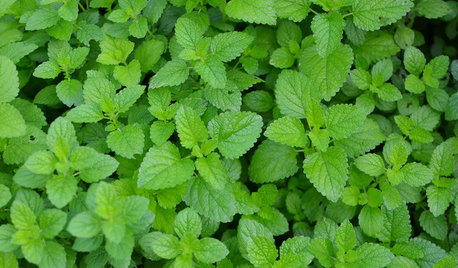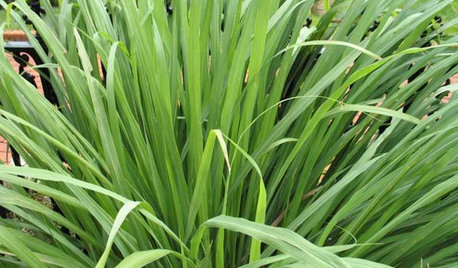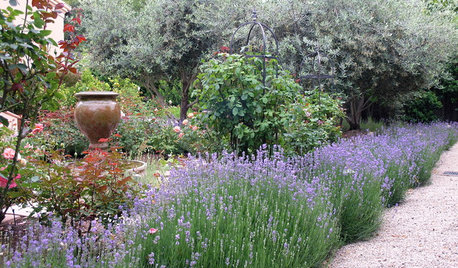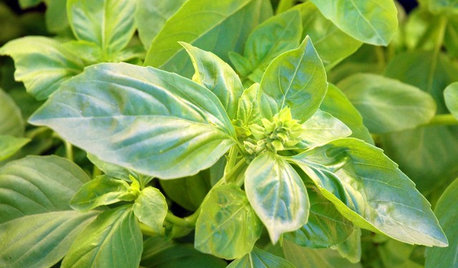processing herbs
gringojay
15 years ago
Related Stories

EDIBLE GARDENS12 Essential Herbs for Your Edible Garden
Make home cooking and drinks even better with herbs plucked from your own backyard or windowsill pot
Full Story
HERBSHerb Garden Essentials: Grow Your Own Zesty Lemongrass
Add lemony goodness to cooking and tropical flavor to your yard with this grass-like herb native to Southeast Asia
Full Story
FLOWERSHerb Garden Essentials: Grow Your Own Fragrant Lavender
This do-it-all plant is ideal for almost any garden, and its uses are abundant around the home
Full Story
Dry Your Garden Herbs for Casual Fall Decor
Snip some sage and round up the rosemary. Dried herbs are just as great for autumnal arrangements as they are for cooking
Full Story
SUMMER GARDENINGHow to Grow Basil
Bright color, quick growth and endless uses for cooking make this summer annual a winner in the garden or a pot
Full Story
GARDENING GUIDESStep Right Outside for Fresh Herbs and Vegetables
Decks and patios can be convenient spots for edibles, and sometimes they even offer advantages over backyard gardens
Full Story
EDIBLE GARDENS8 Surefire Vegetables and Herbs for Beginning Gardeners
Learn the edible plants that are popular and easy to grow in a backyard or container garden
Full Story
EARTH DAYHow to Design a Garden for Native Bees
Create a garden that not only looks beautiful but also nurtures native bees — and helps other wildlife in the process
Full Story
GARDENING GUIDES6 Gift-Giving Gardens for Delights Beyond the Visual
Grow your own natural dyes, snip herbs for home brews and more ... these creative gardens have benefits beyond beauty alone
Full Story
EDIBLE GARDENS6 Summer Edibles That Can Really Take the Heat
When garden temperatures soar, these herbs and vegetables rise to the challenge
Full Story





apollog
gringojayOriginal Author
Related Professionals
Reading Landscape Architects & Landscape Designers · Elwood Landscape Architects & Landscape Designers · Garden City Landscape Architects & Landscape Designers · Costa Mesa Landscape Contractors · Englewood Landscape Contractors · Framingham Landscape Contractors · Milford Landscape Contractors · North Haven Landscape Contractors · Kissimmee Carpenters · Orland Park Carpenters · Brandon Roofing & Gutters · Franklin Roofing & Gutters · Lexington Roofing & Gutters · New Orleans Roofing & Gutters · Coronado Roofing & Gutterssimplemary
gringojayOriginal Author
Daisyduckworth
gringojayOriginal Author
gringojayOriginal Author
simplemary
goshen